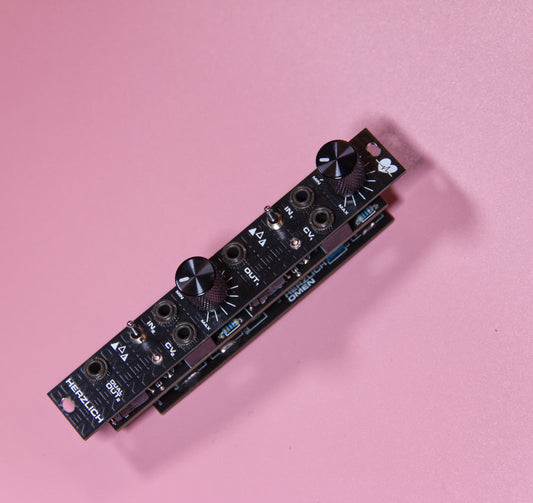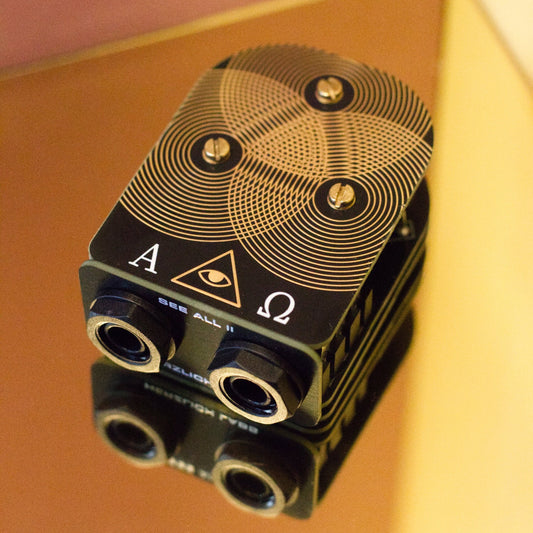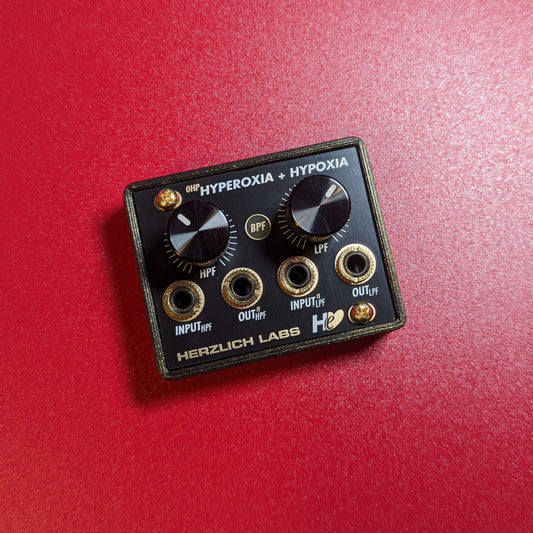Do passive filters degrade audio?
I often meet this question when I'm out there in the real world, talking to other synth enthusiasts: a pervasive fear of passive circuitry, and that it will somehow destroy our audio signals in perceptible or imperceptible ways. It's understandable to be concerned: as musicians, we want our signal paths to be conducive to the purest recreation of our ideas, and we live in an era where low-noise, high-fidelity recordings are easier than ever, for better or for worse.
Perhaps for those reasons, the question is so present in our mind: will a passive filter come in and wreck havoc on my pristine signal? Fortunately, there is for once a relatively simple answer.
Passive filters do not "degrade" audio.
Okay, granted, audio filters are an entire field of science unto itself, and when I've spoken to people, they don't seem all that certain on what kind of "degradation" takes place, exactly. It most often seems like a feeling - it feels like you might be doing something that could negatively impact your signal. You're placing something in the signal chain that might interfere with something important, right?
Well, that's true - but that's just as true for active filters, which arguably introduce even more circuitry and chances for things to go wrong, but we rarely hear about active filters introducing signal degradation, even though it's easy to make an improperly designed active filter which will introduce noise or misbehave.
Passive filters are extremely prevalent in electronics. Sometimes as audio filters, but at other times serving other roles, such as DC blockers or slew rate limiters. They are both incredibly versatile and useful, to the point where you will be hard pressed to find circuits that don't use them in one way or another.
Let's put the final nail in the coffin of this rumor: if there was any truth to the idea of signal degradation, certainly they would not be present in devices where sound replication is critical? However, they play central roles in electric guitar tone control circuits, and yes, hi-fi speakers.
But passive filters do attenuate signals.
Right, so there's one thing filters do - they filter out signals. Not surprising, considering the name, but be mindful that when you start to remove parts of a signal, you also lower the intensity of the signal. In filter terminology, we talk about cutoff slopes in decibels per octave - an ideal filter would have an abrupt cutoff, but reality is rarely so simple.
In an active filter, we have an amplification circuit which allows us to immediately amplify the signal back to it's original intensity, even with multi-pole filters, meaning we perceive no drop in volume. Passive filters have no such amplification, so the drop in volume is more immediately apparent to the listener.
This may be the source of the rumor. All things being equal, it is well documented that our ears and brains prefer loud sounds over quiet sounds, and the louder the better. It stands to reason then, that a passive filter might sound "worse" from the perspective of attenuating a signal in certain cases, but fortunately, there's a simple solution.
You can never have enough VCAs.
I know I'm trotting out an old meme, but hear me out: you need all those VCAs, and you probably have more than a few already. Next time you use a passive filter, try emulating the function of both speakers and electric guitars, by trying to place the filter both immediately before and after the VCA, and see how adjusting your gain changes the tone.
Like the guitar and the speaker, you have lots of gain on tap, all the way into overdrive and clipping. Of course, you may also find plenty of cases where the VCA is entirely unnecessary - cutting out the lows of a signal before processing it in a reverb, or smoothing out the sizzle of a harsh digital oscillator.
Herzlich Labs produces several passive audio filters for various situations, such as the Hyperoxia + Hypoxia, the psLPF and the psHPF, which are a great choice for when a fully fledged VCF is overkill, but an audio filter is still called for. I hope this article could enlighten you in your search for your next filter!
Passive Modules from Herzlich Labs
-
Passive Dual LPG with Linked Two-Pole Resonant Filters - Herzlich Omen - 4hp passive dual LPG for Eurorack
Regular price From 699,00 DKKRegular priceUnit price / per -
Passive Stereo High Pass Filter - 2hp - psHPF - Compact passive filter for utility, mixing, EQ and filtering duties
Regular price 469,00 DKKRegular priceUnit price / per -
SEE ALL 2 - Stereo - Inductive field recording device for EMF recordings, with body contact
Regular price From 399,00 DKKRegular priceUnit price / per -
Passive HPF, LPF and BPF - 0hp / 1U 10hp - Hyperoxia + Hypoxia - dual HPF and LPF or single BPF filter for various filter duties
Regular price From 399,00 DKKRegular priceUnit price / per




